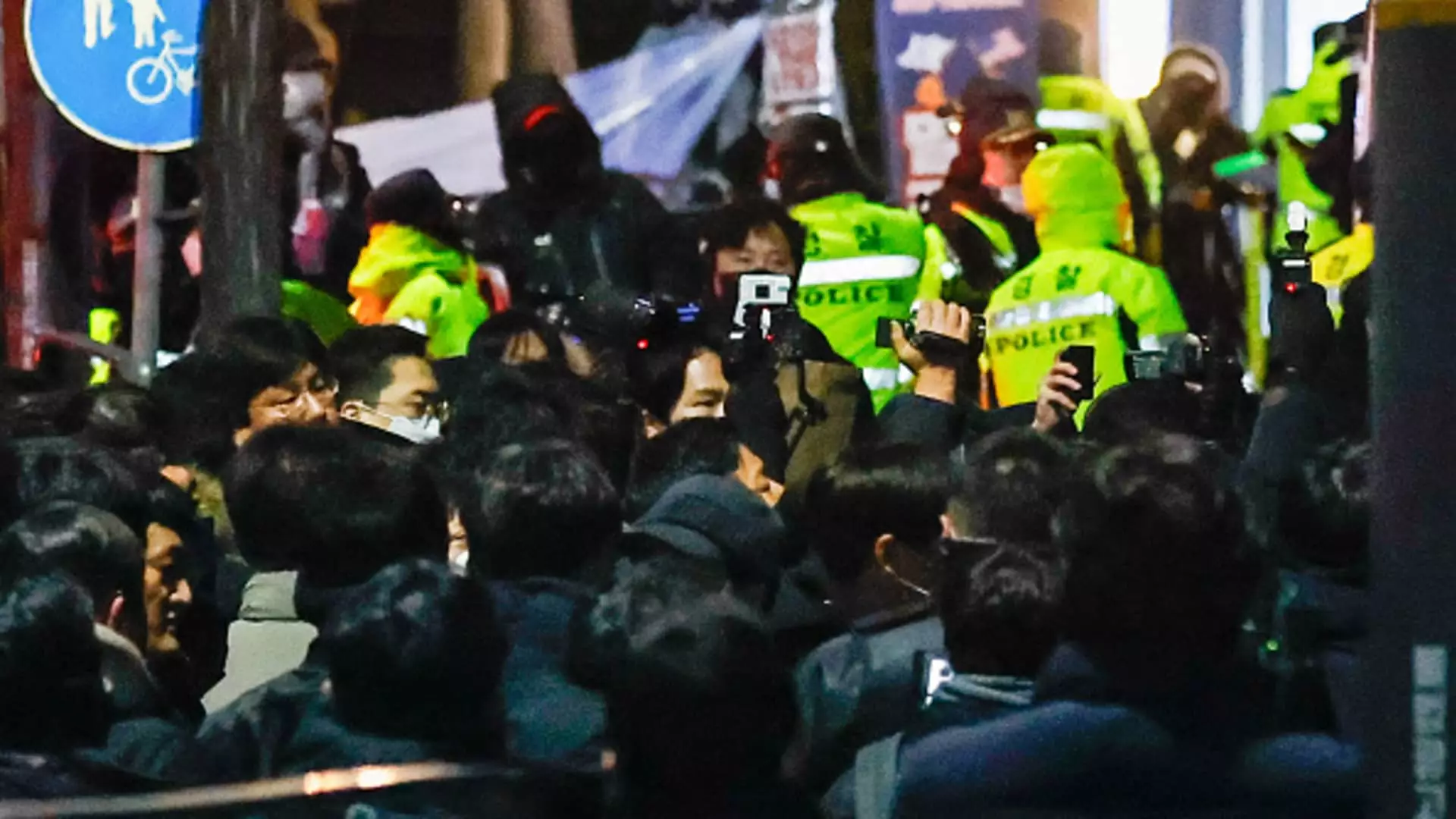In a significant event marking South Korea’s turbulent political landscape, President Yoon Suk Yeol finds himself at the center of a historic arrest by the Corruption Investigation Office for High-Ranking Officials. This unprecedented move—a first for a sitting president in South Korea—highlights not only the fragility of political power in the nation but also raises pressing questions about the nation’s governance and the integrity of its institutions. The initial attempt to detain Yoon on January 3 failed, suggesting an intense standoff between executive power and investigatory bodies. This conflict underscores the ongoing struggle within South Korean politics, where accusations of corruption and abuse of power permeate much of the discourse.
The recent arrest attempt is couched within a backdrop of allegations against Yoon that include charges of insurrection following his controversial declaration of martial law on December 3. This responsibility falls outside the immunity usually bestowed upon a sitting president, suggesting the severity of the potential consequences he faces. The gravity of the situation escalated when Yoon’s assertion of martial law—a response ostensibly aimed at addressing threats from North Korea—was swiftly negated by lawmakers. Their swift counteraction serves to illustrate the clear divisions within South Korea’s political arena, with both the legislative and judicial branches exerting counterbalancing authority against the executive.
Hailing from a backdrop of escalating tensions surrounding the allegations, Yoon’s insistence that “the law of the country has collapsed” reflects a blend of desperation and defiance. His pre-recorded message did not simply aim to convey his innocence but rather portrayed the investigative pursuit as an illegal affront to his presidency. It indicates a deep-seated concern about political accountability, a theme crucial to understanding South Korea’s current realities.
Financial markets showed muted responses to the chaotic political developments, revealing a degree of investment resilience amid the turmoil. The blue-chip Kospi saw a minor increase while the small-cap Kosdaq fell slightly, suggesting that investors remain cautiously optimistic, though unsettled. The fluctuations in the South Korean won, alongside a rise in the yield on 10-year benchmark bonds, hint at lingering uncertainty affecting the nation’s economic climate. Investors appear to be weighing political instability against broader economic fundamentals, seeking clarity amidst the unfolding drama.
The Path Forward: Navigating Uncertainty
As the nation braces for what lies ahead, the prospect of Yoon’s impeachment trial—set to reconvene on January 16—adds further complexity to an already intricate situation. The unfolding events raise vital questions about the nature of political accountability in South Korea. With significant powers poised to act, legislators and the judiciary’s roles will likely define the future trajectory of Yoon’s presidency and, by extension, the nation’s democracy.
As South Korea navigates these unprecedented waters, the political climate continues to reverberate with tensions rooted in both constitutional law and the accountability of public officials. What remains evident is that the outcome of these unfolding events will resonate well beyond the immediate implications for Yoon Suk Yeol and could define the broader essence of democracy and governance in South Korea for years to come.

